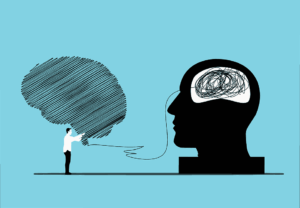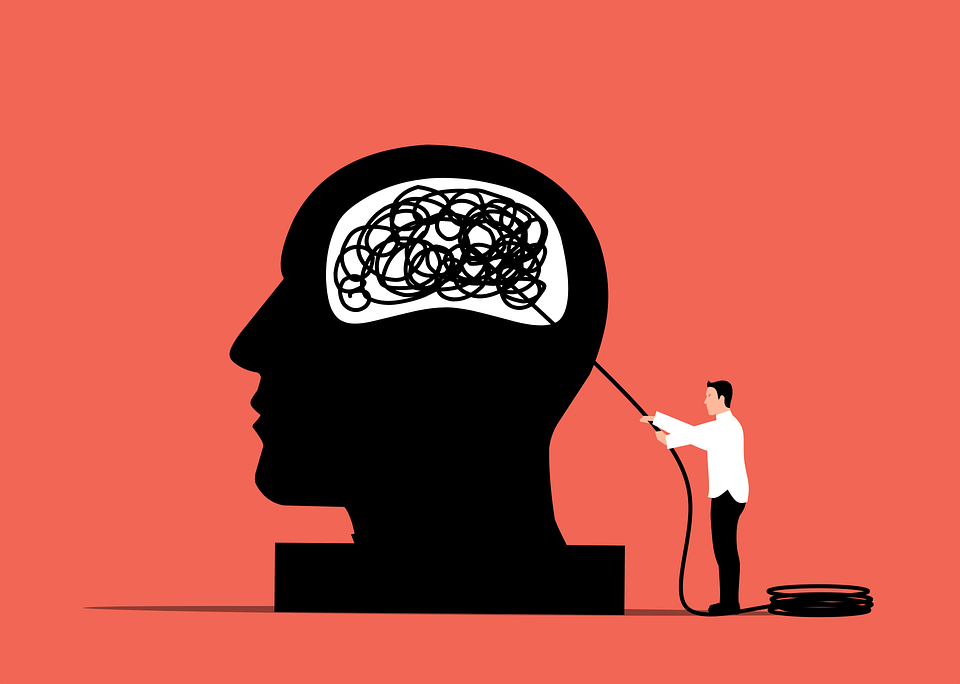Depression is a complex mental health condition that affects millions of people worldwide. It is characterized by feelings of sadness, hopelessness, and a loss of interest in activities that were once enjoyable. While there are many treatments available for depression, including medication and talk therapy, somatic therapy has emerged as a promising approach for addressing the physical and emotional aspects of depression. In this blog, we will discuss somatic therapy for depression, its process, and various techniques. We will also discuss its types and benefits.
Contents
What Is Somatic Therapy?
 Somatic therapy focuses on the connection between the mind and body. It recognizes that emotional and psychological issues can manifest in physical symptoms. This type of therapy uses techniques to help clients become more aware of their bodily sensations and release tension and trauma held in the body. This can lead to relaxation, improved emotional regulation, and a deeper understanding of oneself.
Somatic therapy focuses on the connection between the mind and body. It recognizes that emotional and psychological issues can manifest in physical symptoms. This type of therapy uses techniques to help clients become more aware of their bodily sensations and release tension and trauma held in the body. This can lead to relaxation, improved emotional regulation, and a deeper understanding of oneself.
Is Somatic Therapy Effective For Depression?
Yes, it is an effective option. Somatic therapy for depression helps individuals address the physical symptoms that are often associated with depression. Such as tension, fatigue, and difficulty sleeping. It can develop a greater sense of ease and relaxation by increasing awareness of the body and releasing tension and trauma. This can improve mood and reduce symptoms of depression. However, it is important to note that somatic therapy should not be the only form of treatment for depression. A comprehensive treatment plan may include medication, talk therapy, and lifestyle changes as well.
How Does Somatic Therapy Work?
Somatic therapy works by helping people become more aware of their bodies and the physical sensations they experience in response to emotions. By becoming more attuned to their bodies, people can learn to better regulate their emotions and reduce the symptoms of depression. Somatic therapy can be used to address a range of physical and emotional symptoms of depression, including:
- Physical Tension: Depression can cause physical tension in the body, which can contribute to feelings of anxiety and stress. Somatic therapy can help people release this tension through physical movements and exercises.
- Negative Thought Patterns: Depression can cause negative thought patterns that can be difficult to break. Somatic therapy can help people identify and change these thought patterns by becoming more aware of their physical sensations and the emotions they trigger.
- Emotional Regulation: Somatic therapy can help people become more attuned to their emotions and learn to regulate them healthily. By learning to regulate their emotions, people can reduce the symptoms of depression and improve their overall mental health.
- Trauma: Trauma can cause physical and emotional symptoms that can contribute to depression. Somatic therapy can help people process and release these traumatic experiences by accessing the physical sensations associated with the trauma.
- Self-Awareness: Somatic therapy can help people become more self-aware by learning to pay attention to their bodies and the physical sensations they experience. This increased self-awareness can lead to greater self-esteem and improved mental health.
Types Of Somatic Therapy For Depression
Given below are some types of somatic therapy for depression treatment:
Somatic Experiencing (SE)
 Somatic Experiencing (SE) focuses on the idea that when individuals experience trauma, the body’s natural fight, flight, or freeze response can become stuck. This can result in physical tension and emotional distress. SE aims to help individuals release this tension and resolve the trauma by focusing on bodily sensations and using physical exercises to help individuals discharge the energy that has been stored in the body. This can lead to relaxation and improved emotional regulation.
Somatic Experiencing (SE) focuses on the idea that when individuals experience trauma, the body’s natural fight, flight, or freeze response can become stuck. This can result in physical tension and emotional distress. SE aims to help individuals release this tension and resolve the trauma by focusing on bodily sensations and using physical exercises to help individuals discharge the energy that has been stored in the body. This can lead to relaxation and improved emotional regulation.
Sensorimotor Psychotherapy
Sensorimotor Psychotherapy is a type of therapy that combines talk therapy with physical techniques to help individuals process trauma and release tension held in the body. It aims to help individuals develop greater awareness of their body and mind by focusing on bodily sensations and using physical exercises to help individuals regulate their emotions. This can help individuals develop greater resilience and reduce symptoms of depression.
Dance and Movement Therapy
Dance and Movement Therapy is a type of therapy that uses movement and dance to help individuals express emotions and release tension held in the body. It aims to help individuals develop a greater sense of self-awareness and self-expression by using movement as a form of communication. Hence, this can be particularly helpful for individuals who have difficulty expressing themselves verbally. It can lead to a greater sense of well-being and reduced symptoms of depression.
Yoga Therapy

Yoga Therapy is a type of therapy that combines physical postures with breathwork and mindfulness techniques to help individuals reduce stress and improve their mood. Moreover, Yoga Therapy can be tailored to the specific needs of the individual. It can include a variety of different yoga postures, breathing exercises, and meditation techniques.
Techniques Used In Somatic Therapy
Given below are some techniques used in somatic therapy:
- Body awareness exercises: These exercises help individuals become more aware of their bodily sensations. Moreover, it helps to develop a greater sense of connection between their mind and body. Examples of body awareness exercises may include guided meditations, breathing exercises, and progressive muscle relaxation.
- Movement and dance: Movement and dance help individuals express emotions and release tension held in the body. This can include a variety of different movement practices, such as yoga, tai chi, and dance therapy.
- Touch and bodywork: Therapists may use touch and bodywork techniques to help individuals release tension held in the body and develop greater body awareness. Examples of touch and bodywork techniques may include massage therapy, acupressure, and craniosacral therapy.
- Breathwork: Somatic therapy involves Breathwork which can help individuals regulate their emotions and reduce stress. Examples of breathwork techniques may include pranayama breathing exercises, diaphragmatic breathing, and circular breathing.
- Mindfulness: Mindfulness techniques can help individuals become more present and aware of their thoughts and bodily sensations. This can include guided meditations, body scans, and mindful movement practices.
Benefits Of Somatic Therapy For Depression
 Somatic therapy offers several benefits for people with depression, including:
Somatic therapy offers several benefits for people with depression, including:
- Improved Emotional Regulation: Somatic therapy can help people become more attuned to their emotions and learn to regulate them healthily. This improved emotional regulation can reduce symptoms of depression and improve overall mental health.
- Reduced Physical Tension: Depression can cause physical tension in the body, which can contribute to feelings of anxiety and stress. Somatic therapy can help people release this tension through physical movements and exercises.
- Increased Self-Awareness: Somatic therapy can help people become more self-aware by learning to pay attention to their bodies and their physical sensations. This increased self-awareness can lead to greater self-esteem and improved mental health.
- Improved Sleep: Depression can cause sleep disturbances, which can further exacerbate symptoms of depression. Somatic therapy can help people reduce physical tension and promote relaxation, which can improve sleep quality.
- Reduced Medication Dependence: While medication can be an effective treatment for depression, some people prefer to explore non-pharmacological options. Somatic therapy can be a helpful alternative or complementary treatment for people who want to reduce their reliance on medication.
Conclusion
Somatic therapy is a promising approach for addressing the physical and emotional aspects of depression. By becoming more attuned to their bodies, people can learn to better regulate their emotions and reduce the symptoms of depression. If you are struggling with depression, somatic therapy may be a helpful option to consider. It is always important to consult with a qualified mental health professional to determine the best treatment approach for your individual needs.
For more information, please contact MantraCare. Depression is a mental illness characterized by persistent feelings of sadness, hopelessness, and loss of interest in daily activities. If you have any queries regarding Online Depression Counseling experienced therapists at MantraCare can help: Book a trial Depression Therapy session.


